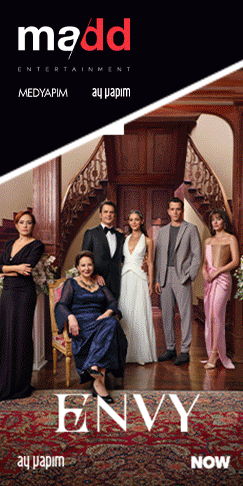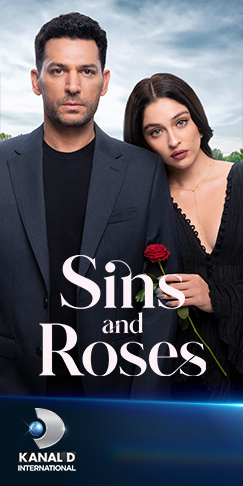Ekaterina Prudkin and Luciana Calcagno, from Argentina’s Contenidos Públicos Sociedad del Estado, spoke to TTV+ about the content they’re looking for in the international market.
TTVMedia, through its TTV+ platform and backed by Eccho Rights, presents its Buyers: What Are They Looking For? initiative to find out more about international buyers’ programming needs.
The interviews were conducted through the base of over 5,000 buyers registered on TTV+, a 24/7 online marketplace where buyers can look through catalogs from thousands of companies, and in which distributors can contact them to close businesses.
This time, we present Ekaterina Prudkin and Luciana Calcagno, from Argentina’s Contenidos Públicos Sociedad del Estado.
What type of content are you looking to acquire for the Contar platform?
Acquiring content for Contar is quite recent. There is no specific guideline yet. We are going to start with some Argentine titles that are produced outside the National Film Institute of Argentina. So we are going to go through them first based on specific thematic cycles or by directors, genres, etc. Acquisitions will be programmed in this way. First Argentine national titles and then little by little growing in other aspects.
And for your sports channel?
Deportv is our sports channel. It is possibly one of the few state-owned public sports channels in the world. It is a channel that shows different sports leagues in which Argentinians participate, the Olympics, the World Cup, but it also follows minor sports leagues or those that have less visibility on private channels.
Beyond that, we have acquisitions for this channel, they are generally of shorter durations, because they are things that are scheduled between competitions. Microprograms that serve us a lot between commercial batches. Biographies of great athletes, how certain sports are played, things that have to do with the history of the World Cups, etc. From time to time we do cycles of specific documentaries.
What kind of content are you looking for for Encuentros?
We always look for content that is recognized at the level of history, geography, hard sciences, something that we try to incorporate without forgetting that it is television and it has to be well produced. We have historical providers like BBC or PBS, Arte France, etc. We try to give a screen to new outlooks and independent distributors, but always within the cultural and educational space. Regarding the formats, series of half or one hour, of 8 or 4 episodes.
Keep in mind that our search has to do with everything that is cultural and educational, both hard sciences and social sciences, history, philosophy, geometry, chemistry, as long as they are entertaining to watch and visually original. Always balancing with our own productions.
The requirement that we have for a visual theme is that the content be educational but that it look good, that they be documentaries from 2017-18 onwards. We always try to ensure that the content we acquire is current in terms of its production date.
We also acquire Latin American content. This management in particular is very interested in having a Latin American look at the channel. We are very open to receiving content produced within Latin America.
And for your kid audience?
Pakapaka is our children’s channel. Also educational and cultural. We are more Discovery Kids than Cartoon Network on a thematic level. The target is between 5 and 8 years old. We look for content of all kinds, generally we prefer what is animation. When it’s live-action, we evaluate a lot. We are looking for female protagonists. And we are also looking for documentaries but they must be from a child’s perspective. The objective of this channel is for children to be the protagonists and what we tell always has a child’s point of view, not so much that of an adult. It is childhood itself narrating.
Another important aspect is that we have a dubbing area that we work with all the time because one of the characteristics of the channel is that the contents are dubbed into neutral Spanish, so that children can recognize themselves in their own accent. These years we have also strengthened the acquisition of content produced in Latin America, which we pass on in its original accent so that children learn that there are other voices in the region.
This year we are looking a lot for series about music, about how music is made, its history, art in general, mathematics and science, and titles that have a lot to do with identities. We think of children as citizens and we want them to be represented. Inclusive series that present realities different from their own.








